[Executive Corner] Smart Factory: Ushering in a New Era of Manufacturing
![[Executive Corner] Smart Factory: Ushering in a New Era of Manufacturing 1 A photo of the factory robotic arms](https://www.lgnewsroom.com/wp-content/uploads/2025/06/Executive-Corner_Smart-Factory-Image-1-600x354.jpg)
Manufacturing has been a cornerstone of global economic growth since the Industrial Revolution. Today, however, the landscape is undergoing a fundamental transformation. Societal and structural shifts – including aging populations, shrinking labor forces, evolving trade policies and overhauled supply chains – are pushing the industry to rethink how products are made.
This isn’t merely a phase of incremental improvement. It’s a turning point, one where the traditional manufacturing model is being reimagined. Forward-thinking companies are embracing next-generation production systems such as gigafactories – vast, automated operations – and dark factories, which can function with minimal or no human intervention.
The momentum is already visible in the numbers. According to Precedence Research, the global smart factory market, valued at USD 155.6 billion in 2024, is expected to more than double to USD 386.4 billion by 2034. With a projected CAGR of 9.5 percent, the smart factory is fast becoming the new foundation of industrial competitiveness.
![[Executive Corner] Smart Factory: Ushering in a New Era of Manufacturing 2 A photo of smart factory machines](https://www.lgnewsroom.com/wp-content/uploads/2025/06/Executive-Corner_Smart-Factory-Image-2-600x400.jpg)
LG’s Vision for Smart Factories
With over 60 manufacturing sites across more than 40 countries, LG has a long and storied history in global production. Building on nearly 70 years of expertise, we launched our smart factory solution business in 2024 to lead this new industrial revolution.
Our approach is rooted in intelligent manufacturing optimization. We go beyond delivering machinery – we form strategic partnerships. Our solutions are built around the specific needs and goals of each client, ensuring a tailored, customer-first approach.
![[Executive Corner] Smart Factory: Ushering in a New Era of Manufacturing 3 A photo of the factory robot shining light](https://www.lgnewsroom.com/wp-content/uploads/2025/06/Executive-Corner_Smart-Factory-Image-3-600x333.jpg)
A Strategic Partner in Manufacturing Transformation
In today’s dynamic manufacturing environment, smart factory solutions are no longer optional – they’re essential. LG offers end-to-end support, from factory design and process audits to ROI analysis and phased implementation roadmaps.
We serve a diverse range of customers, from small manufacturers starting their digital journey to large enterprises modernizing complex operations. Every engagement begins with a deep analysis of industry requirements, production volumes and existing infrastructure – enabling us to craft highly customized solutions.
![[Executive Corner] Smart Factory: Ushering in a New Era of Manufacturing 4 A photo of two factory workers observing an image of factory layout](https://www.lgnewsroom.com/wp-content/uploads/2025/06/Executive-Corner_Smart-Factory-Image-4-600x452.jpg)
AI-Powered, Data-Driven Manufacturing
At the core of LG’s smart factory capabilities is a robust platform powered by approximately 770 terabytes of production data. Leveraging AI and big data analytics, our systems transform conventional operations into intelligent, adaptive ecosystems.
Through digital twin technology, we simulate factory layouts and processes before physical implementation, reducing risk and eliminating guesswork. Generative AI monitors equipment in real time, identifying issues like unusual vibrations and recommending corrective actions. Vision AI further enhances operational safety and product quality by detecting defects and safety hazards instantly.
Consider this scenario: a simple voice command – “7 AM: vibration detected on equipment A” – triggers an immediate system diagnosis, referencing historical data and suggesting next steps. Vision AI can then assist the operator in resolving the issue on-site. This real-time, data-driven decision-making is the hallmark of a true smart factory.
![[Executive Corner] Smart Factory: Ushering in a New Era of Manufacturing 5 A photo of a factory worker working while looking up the screen](https://www.lgnewsroom.com/wp-content/uploads/2025/06/Executive-Corner_Smart-Factory-Image-5-600x338.png)
Proven Results, Real-World Impact
The results speak for themselves. At LG Smart Park in Changwon, South Korea, automation has reached 65 percent, resulting in a 22 percent increase in productivity and a 30 percent reduction in defects. In the United States, our Tennessee facility achieved a 17 percent boost in productivity and a 30 percent gain in energy efficiency.
Both sites have been recognized as “Lighthouse Factories” by the World Economic Forum, – a prestigious acknowledgment of excellence in advanced manufacturing.
![[Executive Corner] Smart Factory: Ushering in a New Era of Manufacturing 6 A photo of factory robot lifting](https://www.lgnewsroom.com/wp-content/uploads/2025/06/Executive-Corner_Smart-Factory-Image-6-600x400.jpg)
Scaling Success Across Industries
Building on these successes, we’re expanding our smart factory solutions into new sectors – from batteries and automotive components to semiconductors and heavy machinery. We’re also entering high-potential industries like pharmaceuticals and cosmetics.
Across the U.S. and Southeast Asia, LG is managing full-scale, turnkey projects designed to enhance efficiency, improve quality and increase competitiveness. We expect orders for our smart factory solutions to reach KRW 400 billion this year, with projections exceeding KRW 1 trillion by 2030.
![[Executive Corner] Smart Factory: Ushering in a New Era of Manufacturing 7 A photo of a man doing a presentation](https://www.lgnewsroom.com/wp-content/uploads/2025/06/Executive-Corner_Smart-Factory-Image-7-600x400.png)
Co-Creating the Future of Manufacturing
At LG, a smart factory isn’t just about high-tech tools – it’s about smart strategies built around our customers. We believe success isn’t defined by how automated a factory is, but by how agile, resilient and future-ready it becomes.
We’re proud to collaborate with our partners to build operations that are not only more efficient, but also more competitive and sustainable. As the manufacturing sector continues to evolve, LG is committed to leading the way – co-creating the future of intelligent production.
By Song Si-yong, head of Smart Factory Business Division, Production engineering Research Institute, LG Electronics
# # #
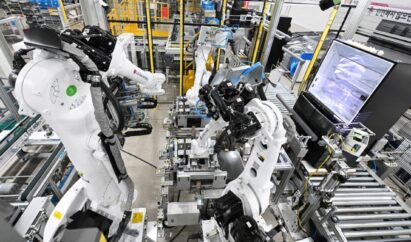
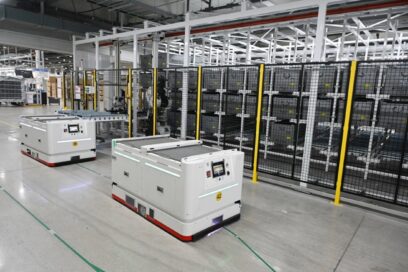
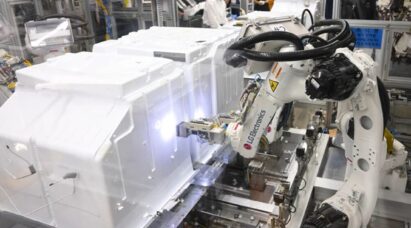
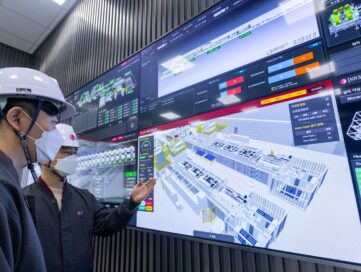
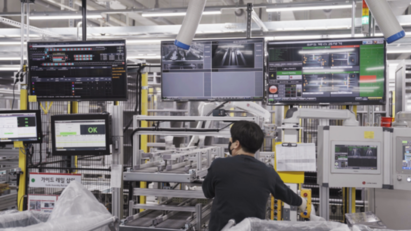
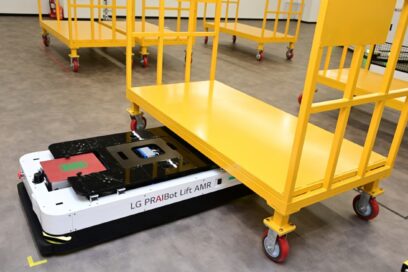
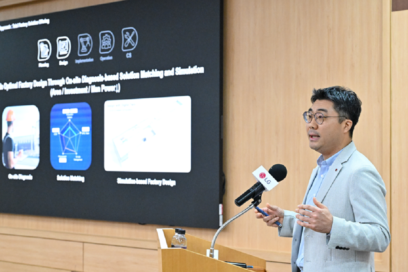
![[Executive Corner] Driving HVAC Innovation for a Smarter, More Efficient Future](https://www.lgnewsroom.com/wp-content/uploads/2025/01/main-image-Executive-Corner-403x272.png)
![[Executive Corner] Insight Relations: Paving the Way for LG’s Future Vision](https://www.lgnewsroom.com/wp-content/uploads/2024/10/Main-Image_Executive-Corner-404x272.png)
![[Executive Corner] Smart Life Solutions for a Zero Labor Home](https://www.lgnewsroom.com/wp-content/uploads/2024/10/Main-Image_Oh-Sai-kee-403x272.png)


